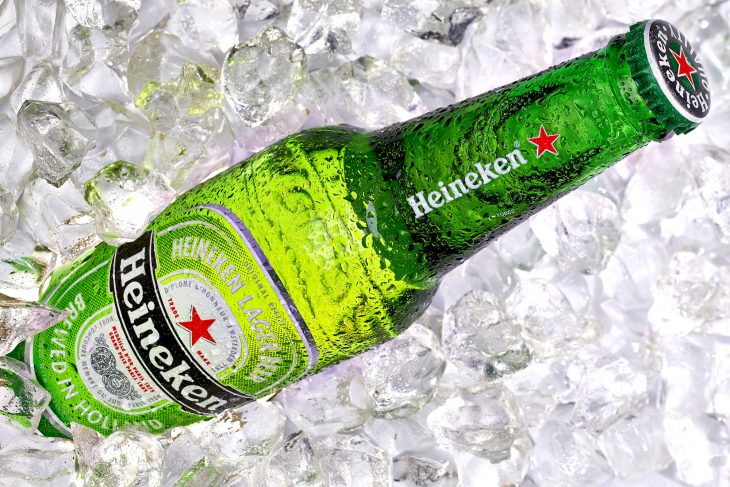
When it comes to iconic beer, Heineken undoubtedly holds a prominent place on the global stage. Founded in Amsterdam in 1864, Heineken has brewed up a reputation for quality and consistency, enjoyed by beer enthusiasts worldwide. But have you ever considered what exactly goes into your bottle of Heineken? Let’s explore the fascinating world of Heineken nutrition facts and discover what’s behind the frothy goodness of this world-renowned lager.
Calories in a Heineken
A standard serving of Heineken, which is 330ml (equivalent to a bottle), contains 150 calories. Like most beers, a significant portion of these calories come from the alcohol content, while the rest are derived from the carbohydrates present in the brew.
Alcohol Content
Heineken is a moderately alcoholic beer, with an alcohol by volume (ABV) of 5%. This percentage is on par with many other popular lagers and is responsible for the calorie content in the beer.
Carbohydrate Content
A standard serving of Heineken contains approximately 11 grams of carbohydrates. This is a moderate amount compared to some other beer types. It’s important to note that the majority of these carbs come from the malted grains used in brewing, which include sugars that are not fully fermented into alcohol.
Protein and Fat Content
Interestingly, Heineken, like most beers, contains a small amount of protein – around 1.6 grams per 330ml serving. However, it contains almost no fat. This is a standard characteristic of beers, as they are typically low in fat and relatively high in protein for an alcoholic beverage.
Sodium Content
A standard serving of Heineken contains about 10 milligrams of sodium. This amount is fairly low compared to other beverages and food items, making Heineken a low-sodium drink option.

No Fiber in Sight
You might be hoping to find some fiber in your bottle of Heineken, given that it’s brewed from grains, but alas, beer isn’t a significant source of dietary fiber. Like almost all beers, Heineken contains no notable amount of fiber.
Heineken is Gluten-Free
Despite being brewed from malted barley, Heineken has been recognized as a gluten-free beer by the European Food Safety Authority (EFSA). The brewing process breaks down the gluten protein to such an extent that the beer is generally safe for individuals with coeliac disease.
Heineken Contains Water, Malted Barley, Hop Extract, and Yeast
These are the four primary ingredients that give Heineken its distinct taste. The malted barley provides the sugars necessary for fermentation, while the yeast converts these sugars into alcohol. The hop extract is responsible for the beer’s bitter and floral flavor notes.
Heineken Light
For those counting their calories, Heineken also offers Heineken Light. A 330 ml serving of Heineken Light contains 99 calories, a noticeable decrease from the original. It also has a lower ABV at 3.3%.
Minerals in Heineken
While beer isn’t typically a significant source of vitamins and minerals, Heineken does contain small amounts of various minerals, including potassium and magnesium, due to the brewing process and the natural mineral content of the water used.
Heineken Zero: An Alcohol-Free Alternative
For those seeking the taste of Heineken without the alcohol, there’s Heineken Zero (also known as Heineken 0.0). It boasts an alcohol content of less than 0.03% and contains only 69 calories per 330 ml serving, offering a lighter, non-alcoholic alternative for Heineken lovers.
Final Word
In conclusion, while enjoying a Heineken may not be equivalent to consuming a nutrient-packed superfood, understanding its nutritional makeup is still valuable. Whether you’re counting calories, monitoring carbohydrate intake, or seeking gluten-free options, these Heineken nutrition facts provide a clear idea of what you’re sipping on when you crack open a cold Heineken. Cheers to informed choices!
Was this page helpful?
Our commitment to delivering trustworthy and engaging content is at the heart of what we do. Each fact on our site is contributed by real users like you, bringing a wealth of diverse insights and information. To ensure the highest standards of accuracy and reliability, our dedicated editors meticulously review each submission. This process guarantees that the facts we share are not only fascinating but also credible. Trust in our commitment to quality and authenticity as you explore and learn with us.
